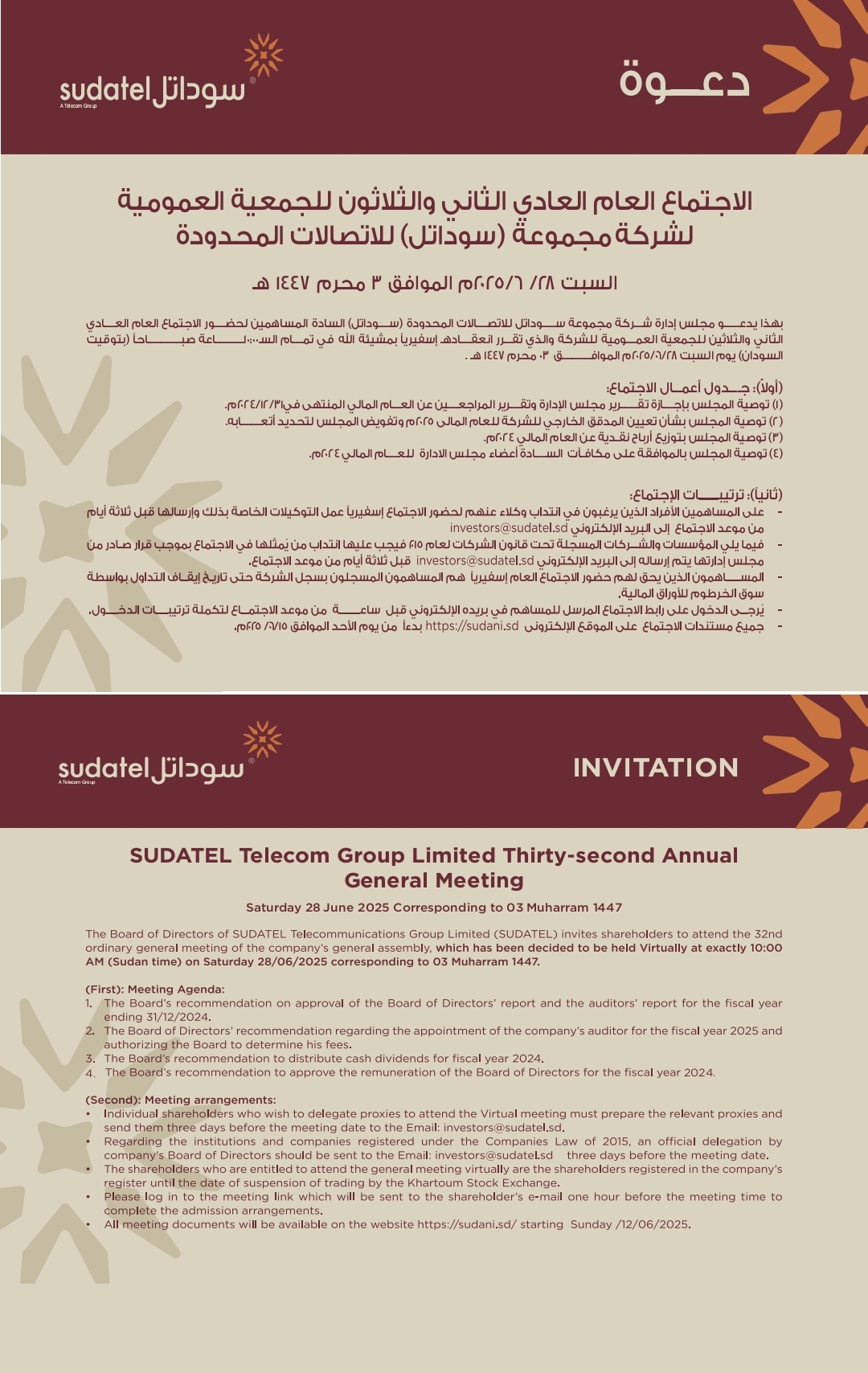د. محمد يوسف قباني يكتب: نحو مجتمعاتٍ مُتعايشة ومُسالمة (2): احْترام وتقدير الْآراء المُختلفة

د. محمد يوسف قباني يكتب: نحو مجتمعاتٍ مُتعايشة ومُسالمة (2): احْترام وتقدير الْآراء المُختلفة
Towards Coexistent and Peaceful Communities (2): Respecting and Appreciating Different Opinions..
Dr. Mohamed Yousif Elgabbani..
في المقال السابق، كنا قد قدمنا بصورة عامة آداب وأخلاقيات الاختلاف والتي قد ضمناها (13) نقطة مهمة، سنتطرق للنقطة الأولى منها في هذه المقالة، وتباعا سيتم تناولهم جميعاً
يعتبر تعزيز الاحترام وتقدير الآراء المختلفة في المجتمعات السودانية من ضمن آداب وأخلاق الاختلاف بحيث يتطلب ثُلَّة من الخطوات والممارسات التي تعزز ثقافة الحوار والتفاهم. إليكم بكل الحب والتكريم بعض الأفكار لتحقيق ذلك:
In the previous article, we had presented in general terms the manners and ethics of difference, which included (13) significant points. We will address the first point of them in this article, and in turn, all of them will be addressed consequently.
Promoting respect and appreciation for different opinions in Sudanese communities is considered part of the manners and ethics of difference, as it requires a number of steps and practices that promote a culture of dialogue and understanding. With love and affability, kindly find some ideas to achieve this:
1. التعليم والتوعية الجماهرية: يجب علينا العمل مع بعضنا البعض، وعلى كافة مستويات التعليم ولكل أجيال المجتمع لتضمين الموضوعات المعدة مسبقاً حول أهمية احترام الآراء المختلفة في المناهج التعليمية. بحيث يمكن عقد جلسات تنويرية بذلك وتنظيم ورش عمل وندوات لرفع الوعي حول قيمة التنوع الفكري وقبول الآخر.
1. Education and public awareness: We must work together with each other, at all levels of education, and for all generations of our community, to include previously prepared topics of the importance of
respecting different opinions in educational curricula or frames even from childhood to adulthood. Thus, enlightening sessions are advised to be held, workshops, and seminars will also be organized to raise awareness about the value of intellectual diversity and acceptance of others.
2. تشجيع الحوار المفتوح: يجب العمل على إيجاد بيئات جاذبة وآمنة تتيح لإنسان المجتمعات السودانية المتحفظة التعبير عن آرائهم دون خوف من الانتقاد. يمكن أن تكون هذه البيئات في المدارس أو أماكن العمل أو حتى في المجتمعات المحلية (الريفية والحضرية).
2. Encouraging open dialogue: We must work to make attractive and safe environments that allow people from conservative Sudanese communities to express their opinions without fear of criticism. These environments are proposed be in schools, workplaces or even in local communities (rural and urban areas).
3. النموذج القيادي: يجب على القادة والمؤثرين والمشهورين في المجتمع السوداني أن يكونوا قدوة في احترام الآراء المختلفة. عندما يرى إنسان المجتمعات القادة يتعاملون باحترام مع الآراء المتنوعة، فإنهم يميلون إلى تقليد هذا السلوك الإيجابي.
3. Leadership model: Leaders, influencers and figures in Sudanese community must set an example of respect for different opinions. When people in communities see leaders treating diverse opinions with respect, they tend to imitate this positive behavior.
4. تعليم مهارات الاستماع: من المهم تعليم إنسان المجتمعات كيفية الاستماع بأدب وذوق وباهتمام وبفعالية للآخرين. يمكن أن تشمل هذه المهارات طرح الأسئلة، وعدم المقاطعة، وإيماءات الوجه الإيجابية، والتعبير عن الفهم والتعاطف مع المتحدث.
4. Teaching listening skills: It is important to teach people in communities how to listen politely, tastefully, attentively, and effectively to others. These skills include asking questions, not interrupting, making positive facial gestures, and expressing understanding and empathy with the speaker.
5. التركيز على القواسم المشتركة: فلنعمل سوياً، فبدلاً من التركيز على الاختلافات، يمكن تشجيع إنسان المجتمعات على البحث عن القيم والأهداف المشتركة التي تجمعهم والتفكير بصورة بناءة على تذليل التحديات التي تسبب الخلافات.
5. Focus on commonalities (what unite us): Let us work together, instead of focusing on differences, people in communities should be encouraged to search for the common values and goals that unite them and to think constructively to overcome the challenges that cause disagreements.
6. تجنب التعميمات: يجب تشجيع إنسان المجتمعات على تجنب التعميمات السلبية حول مجموعات معينة وتحاشي التنميط، والتركيز بدلاً من ذلك على الأفراد وآرائهم.
6. Avoid generalizations: People in communities should be encouraged to avoid negative generalizations about specific groups, avoid stereotyping, and focus instead on individuals and their opinions.
7. تقديم الملاحظات البناءة: يجب تعليم إنسان المجتمعات كيفية تقديم النقد البناء بدلاً من الهجوم الشخصي، مما يساعد على خلق مناخ من الاحترام المتبادل.
7. Providing constructive feedback: Community individuals should be taught how to provide constructive criticism instead of personal attacks, which helps create a climate of mutual respect.
8. تعزيز قيم التسامح: يجب غرس قيم التسامح والقبول في المجتمع، مما يساعد على تقليل الانقسامات والصراعات.
8. Promoting the values of tolerance: The values of tolerance and acceptance must be instilled/embedded in community, which helps reduce separations and conflicts.
9. توفير منصات للنقاش: إنشاء منصات عبر الإنترنت أو فعاليات مجتمعية حيث يمكن لإنسان المجتمعات تبادل آرائهم ومناقشتها بطريقة محترمة.
9. Provide platforms for discussion: Make online platforms or community events where individuals can share and discuss their opinions in a respectful manner.
10. التفاعل مع الثقافات المختلفة: يمكن تعزيز الاحترام من خلال التفاعل مع ثقافات وآراء متنوعة، مما يساعد على فهم وجهات النظر المختلفة بشكل أفضل.
10. Interaction with different cultures: Respect can be enhanced through interaction with diverse cultures and opinions, which helps to better understand different viewpoints.
من خلال هذه العشر خطوات، يمكن للمجتمعات أن تبني ثقافة من الاحترام والتقدير للآراء المختلفة، مما يسهم في تعزيز الوحدة والتفاهم بين إنسان المجتمعات.
Through these steps, communities can build a culture of respect and appreciation for different opinions, which contributes to strengthening unity and understanding among individuals.









